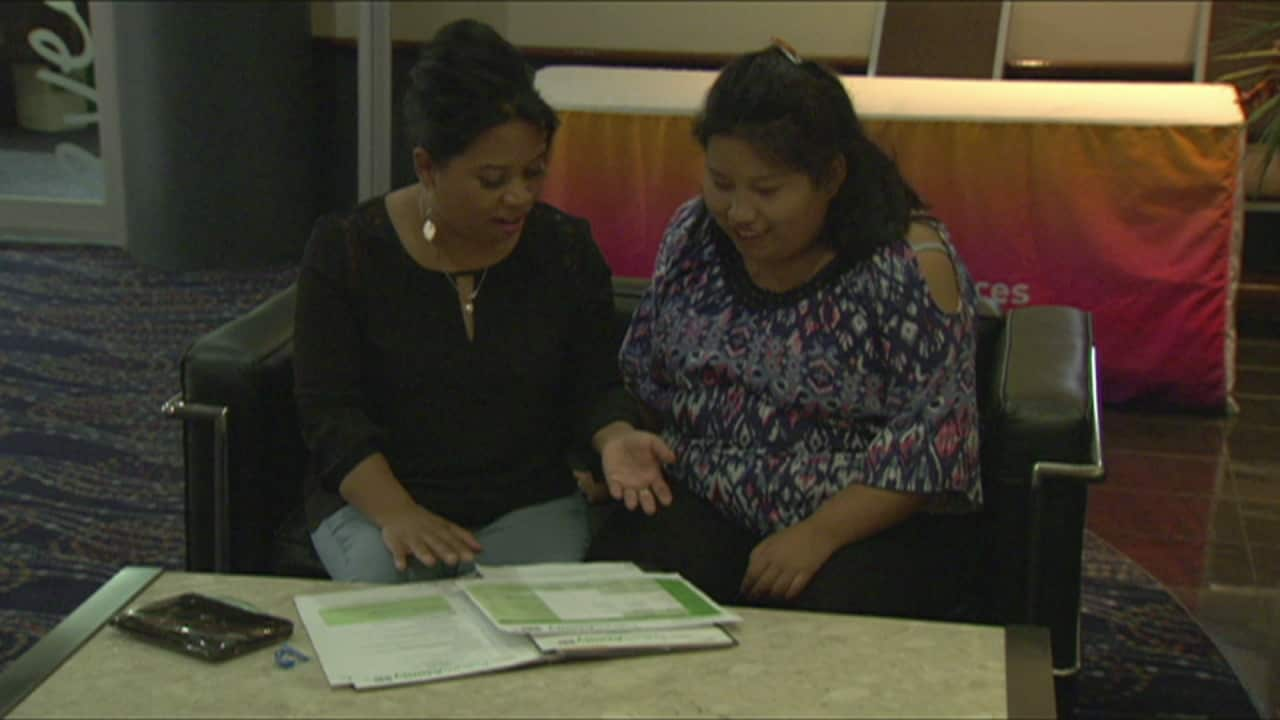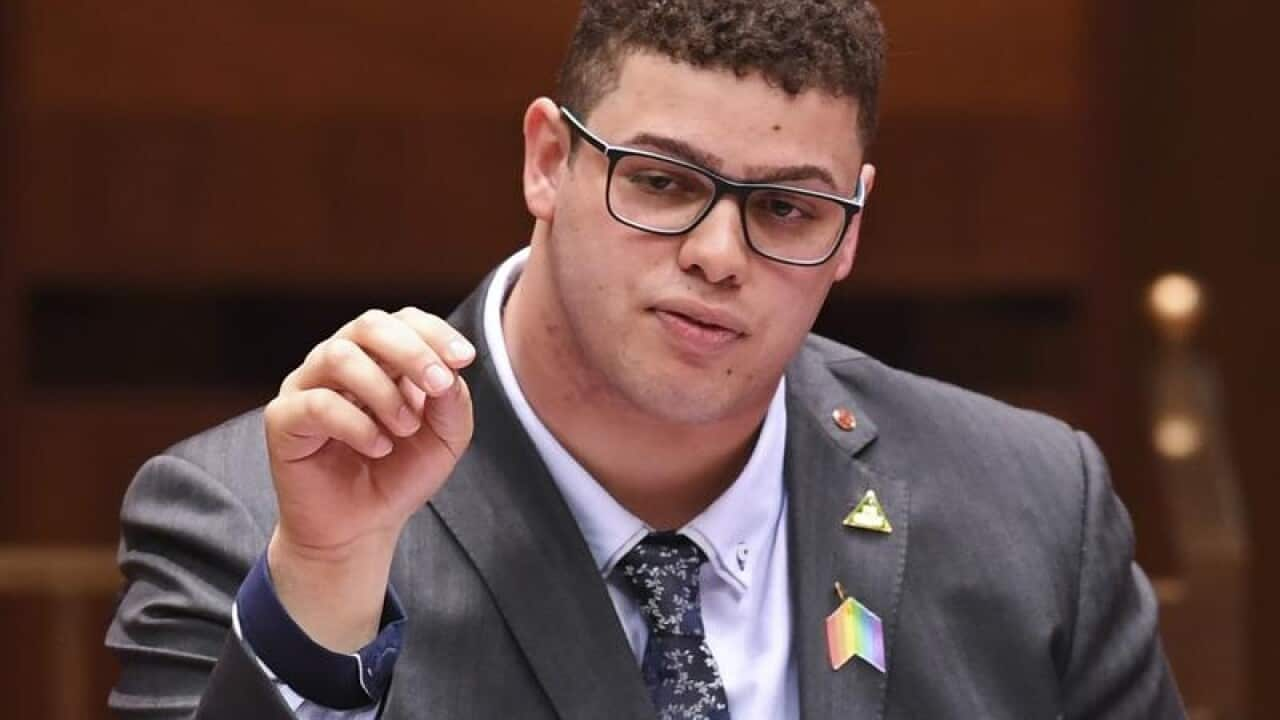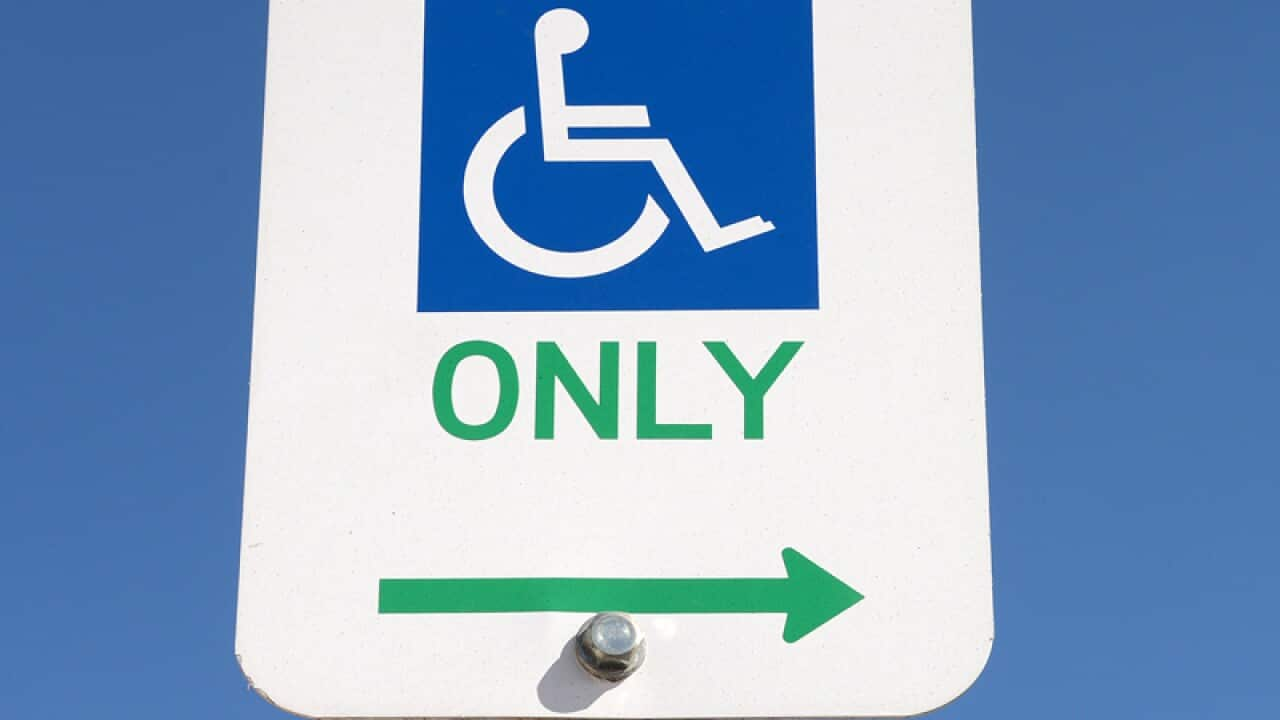The small rituals of daily life for Joy McNee and her 32-year-old son Christopher include having breakfast together and Ms McNee assisting her son to get ready for work.
She raised her son, who was born at 29 weeks, on her own, and says he has a range of disabilities including an intellectual disability.
"He spent the first 19 months of his life in hospital. He is visually impaired and he has a bit of epilepsy and a bit of cerebral palsy, but over the years he's learned to cope with what he's got," Ms McNee told SBS News.
They live together in Guildford, Sydney, where Mr McNee picks up factory work.
Along with 120,000 Australians, he receives support through the
Sunday is International Day for People with a Disability and comes as the NDIS redefines how services are provided for people with disabilities and carers in Australia. The NDIS marks a major shift in disability care. It tailors services like transport and accommodation to the needs of the individual, rather than funding particular groups.
The NDIS marks a major shift in disability care. It tailors services like transport and accommodation to the needs of the individual, rather than funding particular groups.

Joy McNee, right, with her son Christopher. Source: SBS News
The scheme is gradually being rolled out across Australia and, by 2019, about 460,000 Australians with a disability will be supported by it.
Planning for the future
While the NDIS is designed to streamline support, experts say it's vital that carers also plan for the future. Ms McNee hopes the NDIS will support her son with accommodation when she no longer can.
"A few of my friends have just put their children in a group home," she said.
"It's a good idea to see what [your] child will go into before we pass away, because once we pass away, we won't know. I think a lot of other people would feel the same."
Aged and disability services NDIS provider Creating Links is helping Joy and Christopher navigate the scheme, but many of their clients, especially older people and those from multicultural communities, have found it difficult to understand.
According to the latest data from the NDIS, just 6.7 per cent of active participants with an approved plan are from a multicultural background.
Yvonne Learmonth is community care manager at Creating Links.
"We do go through a lot of things with people to help them access the system and have a look at their funding," she told SBS News.
Their office is in a multicultural community in Bankstown, in Sydney's south-west, but Yvonne says it is a challenge to keep the community informed about the changes brought on by the NDIS.
"Especially for people who don't speak English, it's very difficult for them to understand sometimes the concepts about what they can spend as well." Mary Patetsos, chair of the , says older carers from a multicultural background face significant barriers to accessing the scheme.
Mary Patetsos, chair of the , says older carers from a multicultural background face significant barriers to accessing the scheme.

Yvonne Learmonth, Joy McNee and Christopher McNee. Source: SBS News
FECCA say the main issues include a lack of awareness of the NDIS, the absence of an awareness-raising strategy directly targeting these communities, low English language proficiency of some carers and clients, and stigmatisation of disability within many communities.
is a government-funded project helping multicultural organisations working with the NDIS. It has been running a number of information sessions, the most recent in Sydney.
Rebecca Qorraj is the Age Care and Disability Services Manager with SydWest Multicultural Services - one of the groups involved in the information sessions. She says a sense of shame can stop some people reaching out for assistance.
"In some cultures there is still a lot of social stigma in accepting or acknowledging a disability because of the impact that that could have in the social standing in their community. That is something that is quite prevalent with the individuals we are working with." Cathy Naing is a full-time carer for her 19 year-old-daughter Laura who has an intellectual disability as well as , a rare genetic disorder.
Cathy Naing is a full-time carer for her 19 year-old-daughter Laura who has an intellectual disability as well as , a rare genetic disorder.

Cathy and Laura Naing. Source: SBS World News
She says that while she is proud of what her daughter has achieved she often feels alone in her caring responsibilities.
"I don't have that family support. You have a child and you have to face all these barriers," she said.
"And you wake up each day and you just say 'get on with it', and that's how I have a brought up my beautiful lovely daughter Laura who is doing so remarkably well to be normal in her society and her community."
Ms Naing is using both the NDIS and other avenues to help prepare for a future when she is no longer around - and she's urging others to do the same.
"Having the NDIS is a safety net, that one day if I did no longer exist, Laura will be taken care of and be safeguarded."
But Cathy is not solely relying on the NDIS to help her daughter plan for a future without her.
"I guess, writing up wills, that Laura will be able to make supported decision-making with the help of people surrounding her."
Despite doing as much as she can to prepare for the future - Cathy hopes it will be enough.
"It is a big fear for me because I don't know if she will be protected if I'm gone, is she going to be safe? So it is very critical that when I leave that at least I know that I have done all my homework."
Some advocacy groups say once the NDIS is fully rolled out it should play a critical role in future planning for parents. One of those groups, , has been vocal in informing carers about how they can use the NDIS to assist loved ones they are taking care of.
The group's CEO Ara Cresswell says the long-term goal of the NDIS should be to help people with disabilities and their carers put plans in place for the future.
"I've heard many carers say 'I can't die'. Our hope is that the NDIS will provide all of the resources necessary to ensure a person gets a really good life, gives them all the resources they need, in order for an ageing person to grow old gracefully and then to be able to die when the time comes."
A spokesperson for the National Disability Insurance Agency said it is working to deliver strategies and programs to encourage higher participation within multicultural communities.
This includes access to interpreting services for participants and working with National Ethnic Disability Alliance on documentation translation and tailoring of content for non-English speaking communities.





